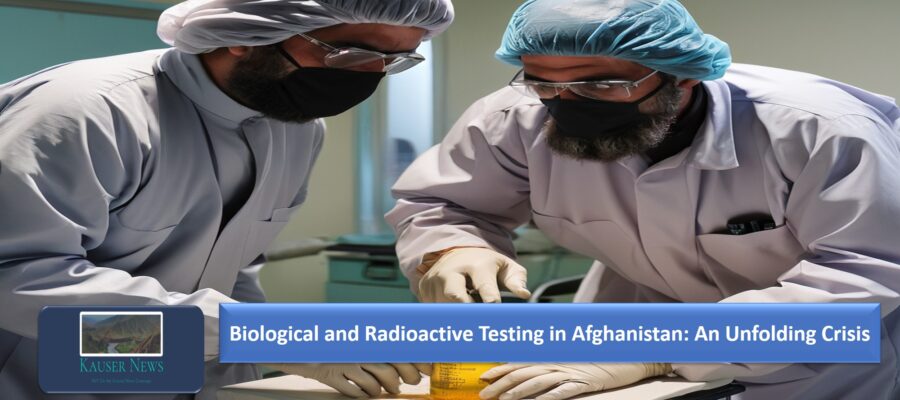Since 2021, reports have emerged alleging that Iran, Pakistan, and China have been conducting biological and radioactive tests in Afghanistan. This controversial activity is raising alarms about the environmental and human impact on Afghan citizens, who are reportedly bearing the brunt of these experiments. Earthquakes in the region have compounded the situation, exacerbating the already dire consequences of these tests.
The exact nature and extent of these tests remain murky, with information largely speculative and hard to verify due to the volatile and politically sensitive nature of the region. However, the primary concerns revolve around biological and radioactive testing, which could have severe environmental and health repercussions.
- Biological Testing: Biological tests often involve pathogens and other bio-agents that can cause diseases. The potential release or mishandling of these agents can lead to outbreaks of illness among the local population, posing significant public health risks.
- Radioactive Testing: Radioactive materials used in tests can lead to radiation contamination. Prolonged exposure to radiation is known to cause cancer, genetic mutations, and other serious health conditions. The environmental impact includes soil and water contamination, which can have long-term ecological consequences.
Earthquake Exacerbation
Afghanistan is situated in a seismically active region, and recent earthquakes have aggravated the situation. The interplay between seismic activity and the ongoing tests can potentially increase the spread of contaminants. Earthquakes can damage containment structures and disperse biological and radioactive materials more widely, increasing the risk to human health and the environment.
The Afghan populace, already suffering from decades of conflict and instability, is facing new threats from these tests. The immediate and long-term effects are multifaceted:
- Health Consequences: Residents in affected areas have reported various health issues, from respiratory problems to unexplained illnesses. The potential for increased cancer rates and genetic disorders is a looming threat.
- Environmental Damage: Soil and water contamination from radioactive materials can devastate local agriculture, a primary livelihood for many Afghans. The loss of arable land and clean water sources further compounds the economic hardships faced by the population.
- Psychological Toll: The psychological impact of living in a hazardous environment cannot be overstated. Fear and uncertainty about health risks add to the stress and trauma experienced by Afghan citizens, particularly in regions heavily impacted by both the tests and natural disasters.
The international community has a critical role to play in addressing this crisis. There needs to be a concerted effort to investigate these claims, assess the environmental and health impacts, and hold responsible parties accountable. This includes:
- Independent Investigations: Establishing independent, international investigations to verify the extent and impact of biological and radioactive tests in Afghanistan is crucial. Transparency in findings can help in formulating appropriate responses and mitigation strategies.
- Humanitarian Aid: Increased humanitarian aid is essential to provide medical care, clean water, and food to affected communities. Support for local healthcare systems to manage and treat health conditions arising from these tests is also critical.
- Environmental Remediation: Efforts to clean up contaminated sites and restore safe living conditions for Afghan citizens are necessary. This includes soil decontamination, water purification projects, and other environmental remediation initiatives.
- Diplomatic Pressure: The international community should apply diplomatic pressure on Iran, Pakistan, and China to cease any harmful testing activities and cooperate with investigations and remediation efforts.





